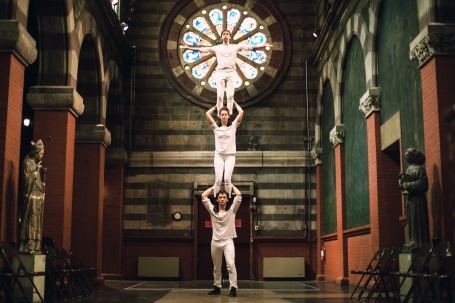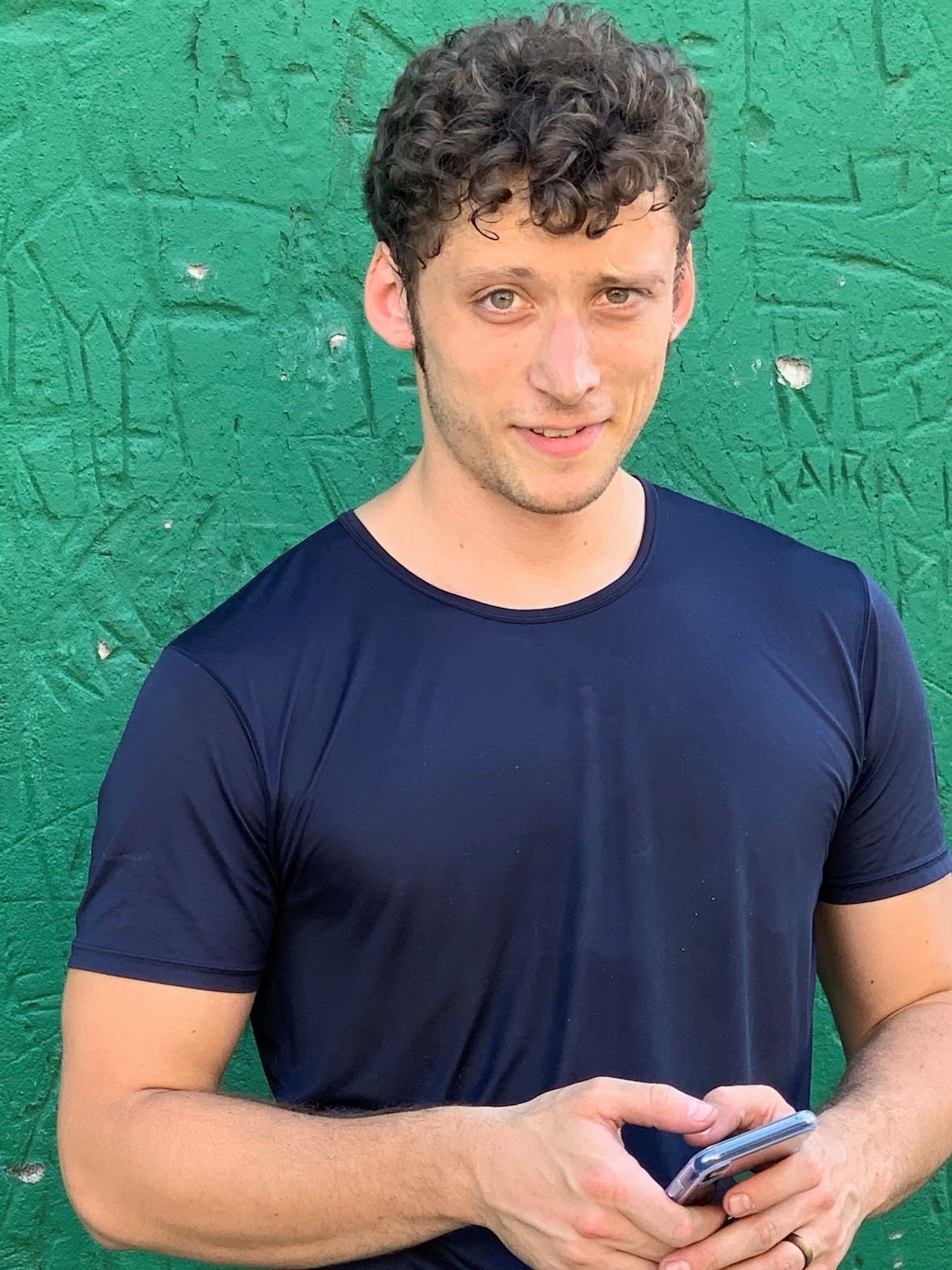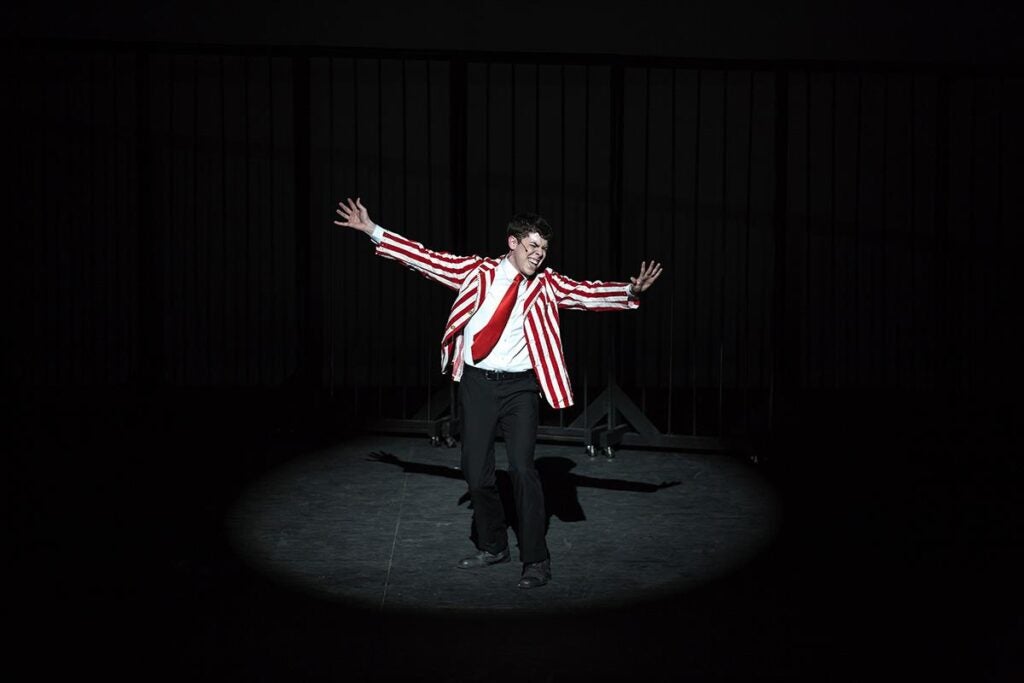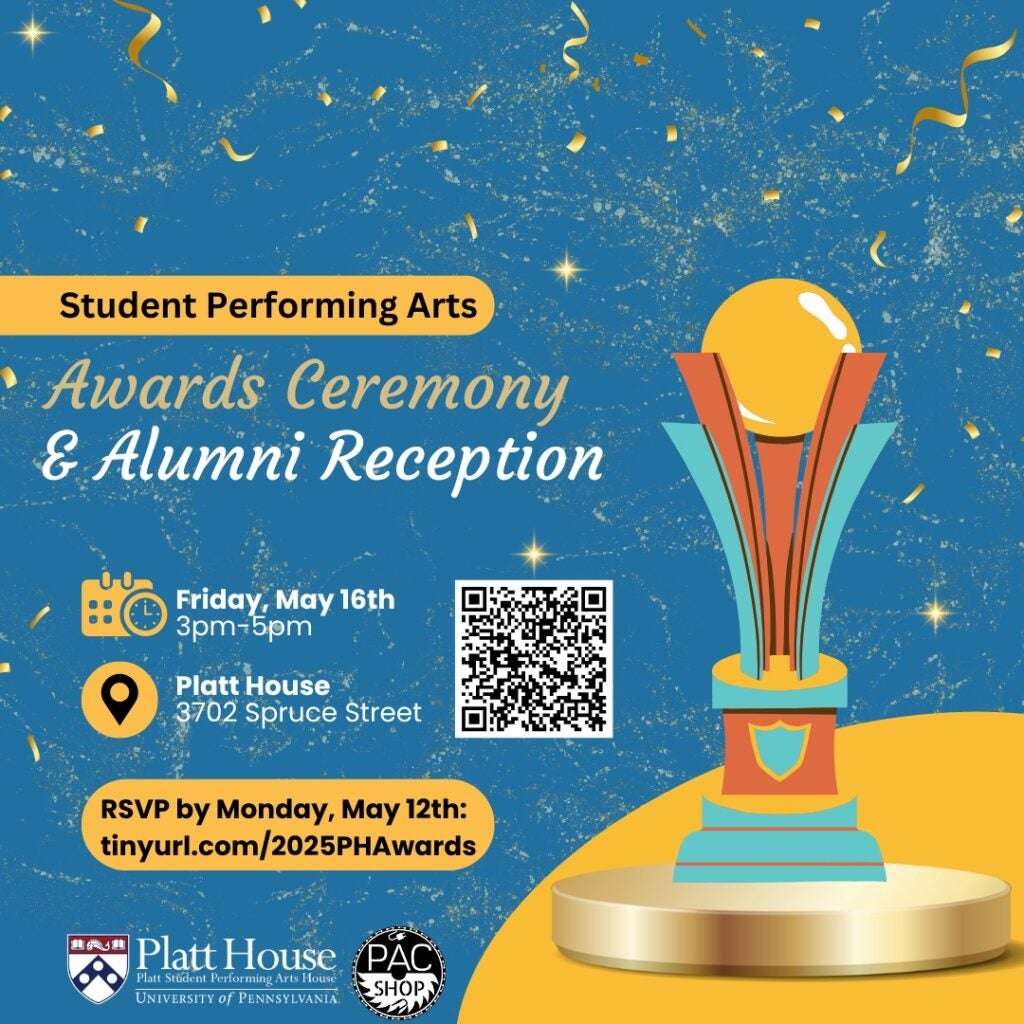Ben Grinberg has learned the importance of balance, not only in his schedule, but literally in his work as an artist and educator at the intersection of circus, physical theatre, and dance. Six years ago, the recent Barrymore winner founded Almanac Dance Circus Theater, an organization that creates full-length narratives told through acrobatic dance theater. Their work includes silent stories, stories with words, site-specific pieces, and improvisational work for cultural institutions. Ben also serves as the head of the Performance and Artistic Craft Department & Artistic Coordinator for the Circardium School of Contemporary Circus, the first certificate-granting circus program in the United States! He is currently helping to develop the curriculum and pedagogy for this program. And he is an alum and now adjunct faculty member of Pig Iron School, where he teaches acrobatics. In mid-November, Almanac will reprise their theatre/dance/circus/music show The Fleecing, an audience-integrated immersive performance at a historic mansion in Germantown. Outside of these roles, Ben is in the midst of researching a project inspired by his grandfather, a Holocaust survivor. This acrobatic dance theatre piece will reexamine what it means to be second-generation from Holocaust survivors, epigenetic comma, and why talking about the Holocaust still matters.
During his time at Penn, Ben served on the board for Quadramics Theatre Co., and he acted and directed for Front Row Theatre Co., iNtuitons Experimental Theatre, and the One Acts Festival. He was also involved with film clubs on campus. Ben is grateful for the amount of self-direction the University fosters in the arts. Ben credits the extra-curricular theatre program at Penn with allowing him to direct nine shows and having the chance to try things out without artistic restrictions. He felt encouraged as a student to go, do, and try: “That’s the best way to learn as an artist’”to just make some wild proposal and see if it works and learn from that.” Ben shares some fun memories exploring the performing arts on campus. In his first year, he directed Quadramics’ spring fling musical Reefer Madness. During the show, the group made space for the audience to join them on stage for a dance party, and the whole theatre erupted into dance. Ben says it w
as an amazing moment that encapsulated all the energy and passion that this community at Penn has, “this exchange of energy with audience.” Ben also recounts directing a Commedia dell’arte adaptation of Agatha Christie’s Mousetrap in his senior year. In researching this art form, Ben worked with Platt House to bring Quinn Bardell from Pig Iron to host a workshop on the form. That workshop changed Ben’s life, setting him on the path to explore physical theatre that stems from the body and improvisation, rather than from a script.

For students interested in pursuing a career in the arts, Ben advises going outside the Penn bubble, into Center City and into the suburbs to take in art all around Philadelphia: “Go see everything.” Getting outside of campus can reveal art forms that can truly inspire and broaden the horizons of what is possible. He also says: “Stay friends with people who you may not think share a worldview with you because I think those people can end up becoming your biggest advocates and supporters, and they will challenge you to make better work.” Ben shares that the arts are important to him because they allow for collaboration and true, deep communication with other people. Working artistically together can lead to intimate and profound relationships that are difficult to find in other contexts. “Artistic expression and creativity have a lot to do with what it means to be human and constantly pushing the boundaries of what we can say and what we can do and what’s possible and what we are able to achieve. Arts has always done that, and we need to keep innovating it and keep figuring out what needs to be said next and what needs to be heard.” Ben shares that his motivation to pursue the arts starts with a drive for the personal connections and individual feelings and moves into facing the large-scale societal issues in our world today. Ben views the arts as a great way to face them head-on.
Photo Credit 1: Lauren Johns
Photo Credit 2: Jenna Spitz



